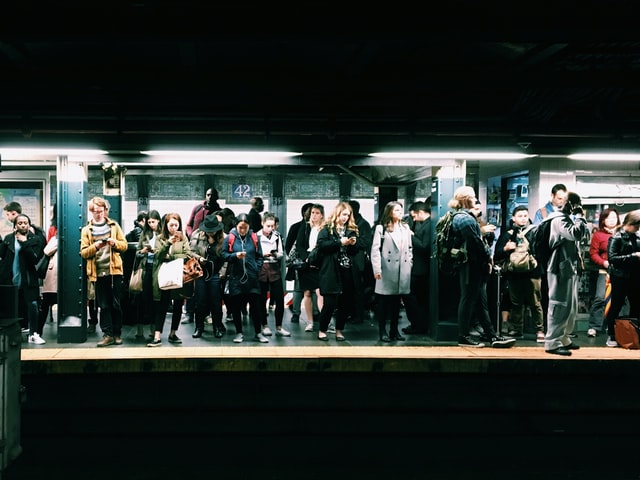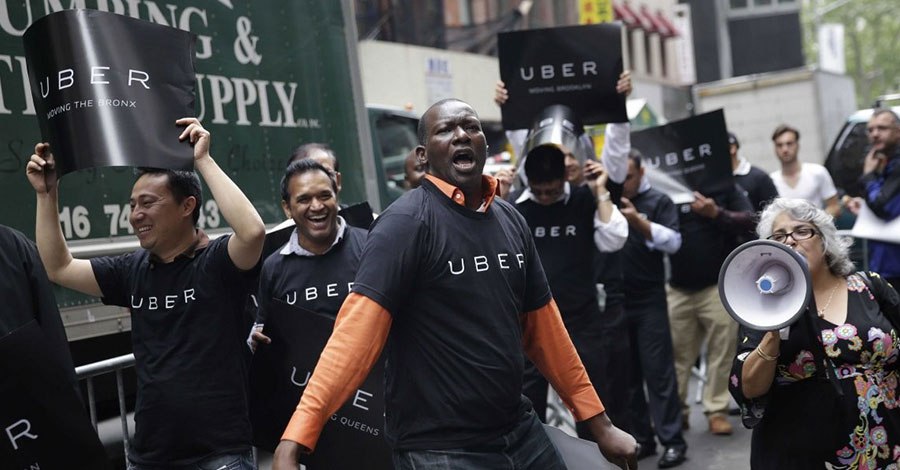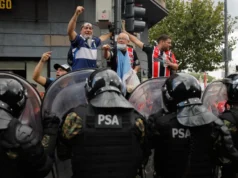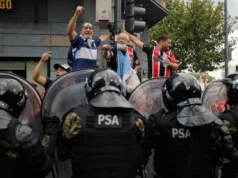By Vitor Ahagon
Also published in portuguese (original) and SPANISH.
São Paulo. Cars. Horns. Thin that the bus takes away. Dog barking. Crusher. Misery… A lot of misery. But you know when, finally, it comes that time of the night when you put your head on your pillow to rest, after a day of work and all the hardships it gives us, and you think “whew, finally”? But then, as if in symbiosis with everything you have experienced during the day, you don’t allow yourself to stop. That’s right, that was my night.
I kept thinking about the story my companion had told me the day before. She told me that she saw a scene on the Blue Line that was shocking. When she arrived at the platform, she saw two subway security guards carrying several backpacks. At first, she thought that they must be coming or going from work, but then she realized that these two security guards were talking intimidatingly and “harassing” a third man, who was wearing simple clothes, was not carrying anything in his hands, was black and did not show any aggressiveness, on the contrary, he was visibly bewildered.
It was then that my companion realized that those backpacks were not those of the security guards, but of the third man. Probably, inside them, there were products and goods that he was selling in the cars, and that had been confiscated by the security guards. The amount of people selling anything in the subway has always been large. Chocolate, chewing gum, gum drops, bluetooth headphones, cell phone chargers, leather wallets, watches, the Spiderman doll that hangs on the windowpane and slowly falls down mesmerizing the children – and me too – in short, a multitude of things. But since the pandemic, the number of people who are working informally in “subway shopping” has grown brutally. According to the IBGE, about 368,000 Brazilians were laid off from formal jobs between April and June 2020. In turn, the number of informal workers in Brazil reached 38 million people in the third quarter of 2021; this represents 40.6% of the working population in the period.
With the increase in the number of peddlers in the subways, the number of seizures has also grown. In 2021 alone, 28,100 products were seized, a much higher number than in 2020, at 19,200, and in 2019, at 20,400, a year when we were not yet experiencing the COVID-19 pandemic, but when the unemployment rate was already high.
To get an idea, capitalism is so outrageous that the São Paulo state government and SEBRAE have created a program called “Nos Trilhos do Empreendedorismo” (On the Entrepreneurship Tracks), which aims to promote the training and generation of opportunities for street vendors who work informally on the CPTM. The program guides how the street vendor can formalize his trade and provides the basic notions of management to run a new business.
Yes, capitalism has reached this level of cynicism and the message it sends us is: if you don’t want to be a criminal, be a business! Law circumscribes the limits of what is permissible, even if this border is inside our soul. State and Capital are still embraced together by faith, without one the other does not dance to the crazy music of the culture industry. Most likely, the third man in my companion’s story was not working legally, was not a businessman of himself, so his products were seized. The third man, bewildered and humiliated that he could not even have the dignity of being a worker – albeit an informal one – began to approach, slowly and frighteningly, the edge of the platform. With his eyes blank and lost, he watched the train approach and then, at the last moment, the two security guards pulled him aside and confiscated the last piece of merchandise, his life. In that moment, he was given one more chance to live a life without work, without dignity – and without the choice of not wanting to live it.






